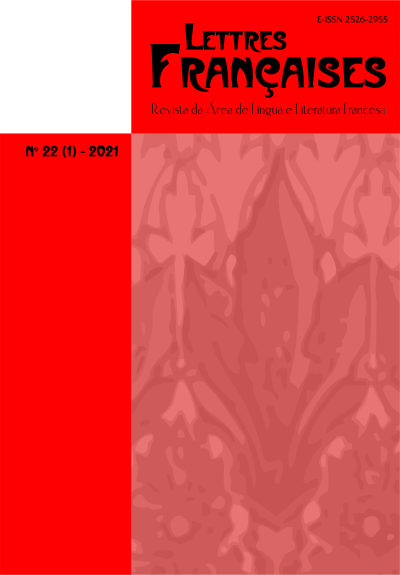La fin de Satan, by Victor Hugo
a mythical rewriting
Keywords:
Myths, Revolutionary values, Satan, Victor HugoAbstract
In this article, we contemplate myth as a system of language and thought attached to poetic forms in order to examine the mythical rewriting in La Fin de Satan (1886), by Victor Hugo. Considering the revival of myth in modernity, especially in romantic literature, we notice Hugo’s idea of rewriting myths – like the coming of the Messiah, the apocalypse that tells the victory of good over evil, and the Promethean legend of the outcast – welding them to revolutionary values like freedom, equality, and the fight against tyranny. The character Satan, from the Judeo-Christian tradition, is represented in the mentioned work as a victim of disproportionate punishment and is compared to Prometheus, the titan of Greek mythology. Hugo establishes the image of the outcast as someone subjected to the injustice of the Creator’s sanction. God’s unreasonable punishment is responsible for the universal evil inasmuch as the fallen archangel feels injured and, looking for redress through revenge, engenders inordinate evil against every creature. This evil will be exterminated the moment Satan is forgiven – forgiveness will compensate him and restore the universal balance.
Downloads
Published
Issue
Section
License
Os manuscritos aceitos e publicados são de propriedade da Revista Lettres Françaises. É vedada a submissão integral ou parcial do manuscrito a qualquer outro periódico. A responsabilidade do conteúdo dos artigos é exclusiva dos autores. É vedada a tradução para outro idioma sem a autorização escrita do Editor ouvida a Comissão Editorial.

